Green New Deals and new Green leaders – UK Green news round up week 25
Magid Magid and Alex Phillips set out how a Green New Deal could beat the far right
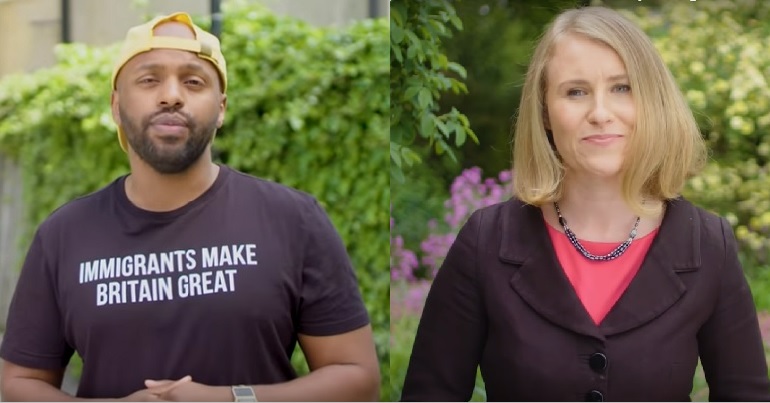
The Green New Deal is all the rage right now. One of its biggest Green Party advocates is the newly elected Green MEP for South East England Alex Phillips. And this week, she teamed up with her European parliamentary colleague Magid Magid to argue that a pan-European Green New Deal could stymie the progress of the far-right.
In an article for the Huffington Post, the MEP pair argued that defeating the far right will naturally require directly confronting its bigotry. But they also argue that it will require refusing to concede political ground to the far right. They wrote that working to defeat the far right:
means refuting any suggestion that migrants are somehow responsible for unemployment, low pay or stretched public services – and making it absolutely clear that it is the failure of government policy which has caused our economy to utterly fail the majority of people, while selectively benefiting the interests of big business and the tax-dodging billionaire elite.
It means being uncompromising in our belief and unshakable in our commitment to open borders and Freedom of Movement.
They also specifically argued that a Green New Deal would remove the political climate in which the far right can flourish:
To completely defeat the politics of hate, however, we must do much more than say the right things. We need a detailed, transformative political programme that will lift us from the economic turmoil we find ourselves in.
And they continued:
It is abundantly clear that to get out of this mess, we need to get radical. That’s why we are proposing a federalised, pan-European Green New Deal, to systemically transform and empower every economy in this continent and to shift quickly and emphatically away from a fossil-fuel driven apocalypse. A Green New Deal would see rapid decarbonisation, sweeping changes in the way we travel, a rollout of the biggest ever warm-home scheme in history. It would see well paid jobs in every corner of the continent – especially in the forgotten districts of our constituencies that have long been made to suffer the brunt of deindustrialisation.
Three candidates emerge as Scottish Greens set about choosing a new leader
The Scottish Green Party is in the process of electing its first ever co-leaders. The party previously had two ‘co-conveners’, but recent constitutional changes renamed the roles.
So far, three candidates have put their names forward for the top job.
First up is Lorna Slater. A renewable energy engineer by trade, Slater stood in the May European parliament elections as the second placed candidate on the Scottish Greens’ list. During that election, she participated in a major BBC debate and generated a reputation as an effective media performer. The same month, Slater stood in a council by-election in Edinburgh, where she picked up 25% of the vote and came second to the SNP.
Speaking on her candidacy, Slater said:
Our Councillors and MSPs have a significant track record of working hard in the best interests of their local communities and of the people of Scotland. I hope to be a fresh start for the party and lead the Scottish Greens through the uncertainties of Brexit and toward the opportunities that Scottish Independence offers.
I will support the Scottish Greens volunteers in their work to get more Greens elected in Scotland. Only the Scottish Greens are taking the climate emergency seriously and have practical policies to tackle it. We will continue to work for social justice, sustainability and grassroots democracy in Scotland. The Scottish Green party are committed to working toward in Independent Scotland inside the EU.
Graham Kerr was the second candidate to declare his intention to stand for the leadership. Kerr is a Green activist from North Lanarkshire. He previously stood for the co-convener position in 2017, but was defeated by Patrick Harvie.
Speaking on his campaign for the leadership, Kerr said:
I want to take our party forward gathering support not only from our own current supporters but from people who are disillusioned with the poor offering of the other Scottish parties at a time when austerity is biting hard and there is a climate emergency.
And finally, Aberdeen Green activist Guy Ingerson has also launched a bid for the leadership. Ingerson is the co-convener of Aberdeen Greens, and previously led the Scottish Greens LGBT+ group, the Rainbow Greens.
Speaking on his candidacy, Ingerson said:
There has never been a more exciting time to be in Green politics than right now. We’ve seen how well Green parties can do across Europe and it is my ambition to emulate that success here in Scotland. I got into Green politics during the height of the oil price crash in 2015, like many others in the North East I suffered and as a result I [have] seen the need for us to change our economic future. Fossil fuels are [not] just destroying our planet, they are damaging the lives of ordinary working people too.
He added:
“I really want us to be achieving our potential. There is a wealth of talent in the party that many people just don’t get the chance to see. I want to change that by supporting local Green branches, supporting members to stand in more seats and by taking the Green message to new voters. We’ve seen Labour collapsing and, this week especially, we’ve seen the SNP block or delay progressive legislation in areas such as the environment, housing, transport, planning and LGBTI+ rights.
Nominations for the co-leader positions close on June 28. At present, none of the Scottish Greens’ group of MSPs, including current co-convener Patrick Harvie, have stated whether they intend to stand for the leadership roles. Nor has Harvie’s colleague as co-convener Maggie Chapman.
Greens welcome legal decision on Saudi arms sales
This week, the Court of Appeal ruled that Britain’s arms sales to Saudi Arabia are unlawful. The decision came after a legal case launched by Campaign Against Arms Trade.
Prominent Greens have welcomed the court’s decision.
Green MP Caroline Lucas congratulated Campaign Against Arms Trade and called for an end to all arms sales to governments’ that commit atrocities upon civilians:
Well done CAAT.
Government must stop selling arms used to commit atrocities against civilians https://t.co/bfFKG5m6YX
— Caroline Lucas (@CarolineLucas) June 20, 2019
Green MSP Ross Greer also welcomed the decision. He described it as “incredible” news:
Incredible breaking news from the Court of Appeal! @CAATuk have won, the UK has been ordered to #StopArmingSaudi and the arms sales have been declared unlawful!https://t.co/mH6KnLPeuQ
— Ross Greer (@Ross_Greer) June 20, 2019
And Green Party of England and Wales co-leader Jonathan Bartley described the ruling as a “stunning rebuke” to the government:
The Court of Appeal verdict is a stunning rebuke for the government.It has failed in a basic legal obligation to make a systematic assessment of the past violations of human rights law, as it should have done before granting export licences.The government should also take this opportunity to rethink its whole approach to a regime notorious for its abuses of its own citizens, and actions in Yemen.British arms sold to Saudi Arabia are implicated directly in rights abuses. The sales are also making the world a less stable and secure place, threatening all of our futures.
Patrick Harvie condemns Scottish parliament as a “platform for transphobic hatred”
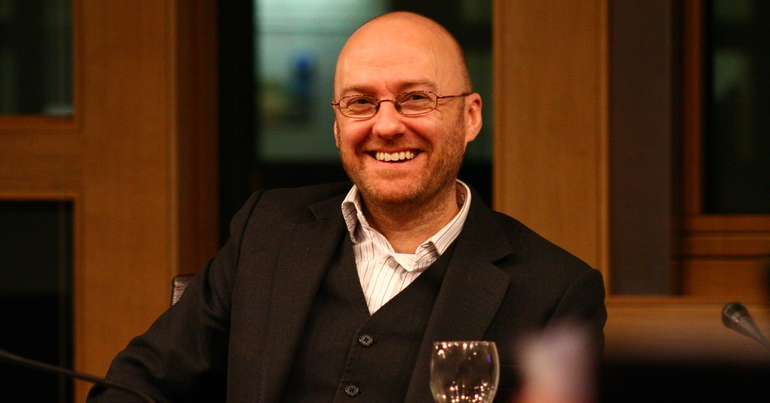
Scottish Green Party co-convener Patrick Harvie hit the headlines this weekend. He accused the Scottish parliament of being a “platform for transphobic hatred”.
His comments were made at the annual Edinburgh pride event. According to reports from the Scotsman, Harvie compared the battle for trans rights to the battle to repeal the homophobic Section 28 law. Harvie said:
Now those within our communities who are experiencing that same level of hatred, of stigma, of aggression and in this case of transphobia, they need to know that we will stand together again.
I am sorry that this parliament very recently was used as a platform for transphobic hatred and bigotry, but I am determined that we won’t let that tell us we’re going to lose.
The comments come after the SNP government recently delayed plans to reform Scotland’s gender recognition laws. Harvie criticised this delay, saying:
Trans people have been waiting a long time for this reform and they have support from across the political spectrum and from well-respected women’s and feminist organisations across Scotland.
The Scottish Green Party support reform of gender recognition laws to allow individuals to self-identify their own gender. Its policy states:
We support reform of gender recognition law to a self-definition process, removing the psychiatric diagnosis requirement. We support legal recognition of those who are neither male nor female, such as appropriate options on legal documents such as passports.
Green MEPs join calls for international investigation into UK’s democracy
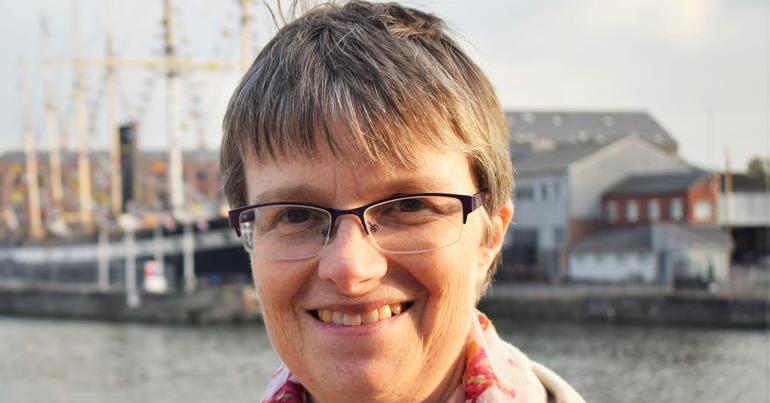
All nine of the incoming and outgoing MEPs have joined a cross-party call for an international investigation of the UK’s democracy. The MEPs have all signed a letter calling for an investigation into following specific areas:
- The breach of spending rules and data-protection laws during the EU referendum in June 2016.
- The exclusion of non-UK EU citizens residing in the UK from the franchise for the EU referendum.
- The government’s approach to the European Elections last month, which involved leaving planning very late and put intolerable pressure on electoral services departments of local authorities.
- The disenfranchisement of UK citizens resident in other EU countries whose postal votes did not arrive in time.
- The disenfranchisement of non-UK EU citizens due to the two-step process for registration in the UK and including a declaration by post that citizens were not voting elsewhere in the EU.
Molly Scott Cato is among those who joined the calls. On the publication of the letter, she described Brexit as a “crime scene”, and called for the European Commission for Democracy through Law – also known as the Venice Commission to protect the rule of law:
It is clear that our existing government, and certainly none of the contenders for the Tory leadership, have the slightest intention of addressing the worrying decline in our democratic standards. People are being excluded and laws have been broken. But most worryingly of all, it is our democracy itself that is broken.
Brexit is a crime scene, yet our efforts to ensure the perpetrators face justice, using the agencies available in the UK such as the Electoral Commission and National Crime Agency, have so far failed. It is time to look further afield to international bodies upholding democratic standards and protecting the rule of law, which is why we are taking our case to the [Venice] Commission.
Andy Wightman condemns inaction on empty homes
Green MSP Andy Wightman this week criticised the Scottish government and called for more action to tackle the levels of empty homes in Scotland. The criticism came after new figures found that there were 83,435 empty homes in Scotland in 2018.
Responding to these figures, Wightman said:
People are crying out for affordable housing, yet we have a total of over 100,000 empty and under-used second homes across Scotland. It’s incredulous that the proportion of empty homes is rising and astonishing that not all councils have empty homes officers to bring properties into use.
The Scottish Government has long overlooked the issue of unoccupied homes but we simply cannot ignore the fact that the number of empty homes has increased by over a fifth in the last decade. Connected to that, it’s clear that there’s uneven spread throughout Scotland with remote rural areas having the highest percentage of dwellings that are either empty or second homes.
Alex Phillips slams government over community energy failure

This week, Community Energy England released its annual state of the community energy sector report. It was released to coincide with Community Energy England’s conference.
Green MEP Alex Phillips has responded to the report by attacking the government’s record in this area. She accused the government of a “total failure” to engage with the sector:
The report describes 2018 as “a year of uncertainty and challenge”.
There’s only one source of that uncertainty, the total failure of government policy to engage with the needs of this crucial part of the renewables sector that is also an essential part of strong, resilient local economies right across the country.
She continued:
Eighty two per cent of people think the government should do more to help communities generate their own energy.
The government should listen to the people, and the call for the restoration of tax relief on investments in community energy projects made today at the conference.
Community energy is a crucial part of the Green New Deal – it contributes to tackling the climate crisis, taking people out of fuel poverty and creates secure, local jobs, keeping money circulating in local economies, rather than being swished off into the coffers of giant multinational companies.
Jonathan Bartley and Sian Berry back calls for a “right to repair”
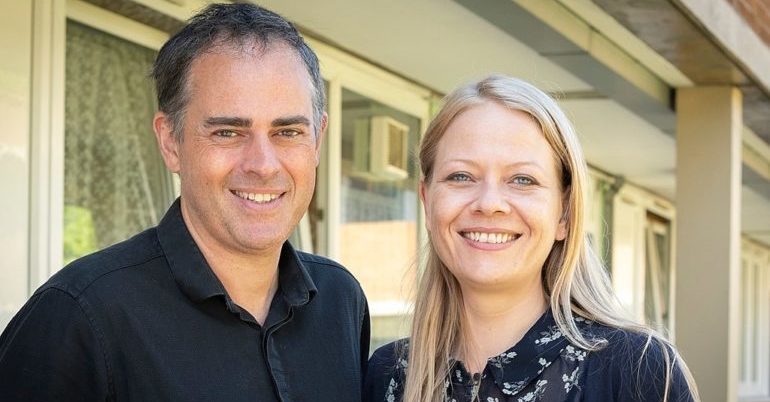
Green Party of England and Wales co-leaders Jonathan Bartley and Sian Berry this week joined calls for a right to repair for consumers. The co-leaders signed the Manchester Declaration. The declaration calls on policy makers, manufacturers and product designers to make products easy to repair. The right to repair is often seen as an important step in building a more circular economy and reducing the environmental impacts of manufacturing.
Speaking on their support of the right to repair, Bartley said:
We all know how annoying it is when an appliance that we know used to last for decades dies after a few years, when a new computer won’t work with an older printer, when an expensive kitchen appliance becomes useless for the want of a minor part.
As consumers, we should have the right to goods made to last, designed so that if an element goes wrong it can be repaired (ideally at home or at a repair cafe), that parts will be available when needed and documentation available to assist the repairer.
And Berry added:
We are committing to using our political influence at local, national and EU level to trigger the switch to a circular economy, and fight for our right to repair.
Planned obsolescence does not benefit the consumer. It certainly doesn’t benefit our planet. The only thing it benefits is the pockets of corporations.
Brighton & Hove Greens continue fight against academisation
The Green group on Brighton & Hove City Council have continued their battle against a local school being forced to become an academy. The Green councillors are campaigning to stop the Mouslecoomb Primary School falling victim to a forced academies order.
And this week, they were joined by Green member of the House of Lords Jenny Jones. Jones joined the campaign, as a former pupil of the school. Speaking on the campaign, Jones said:
Academies have not shown they improve results and yet the Government continues its ideological agenda to force academisation on schools like Moulsecoomb. As a former pupil, I am proud to join the campaign to say Hands Off Moulsecoomb Primary.
Working with Caroline Lucas MP, I will lobby the Government to change their misguided policy and do what is best for pupils – giving their schools the funding they need to succeed.



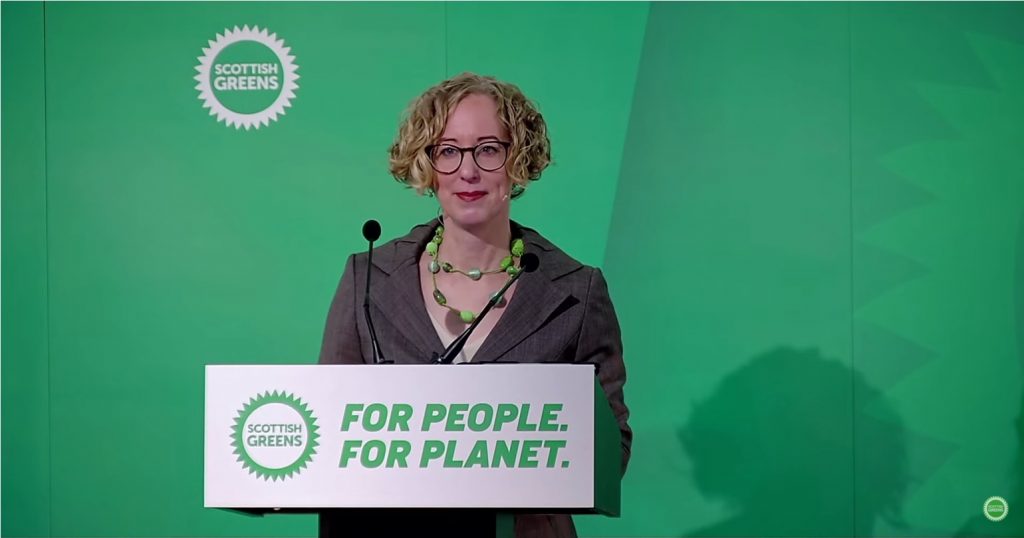

Leave a Reply